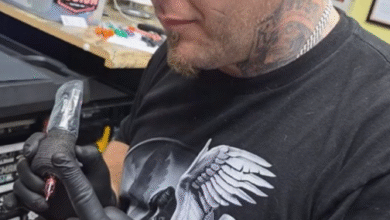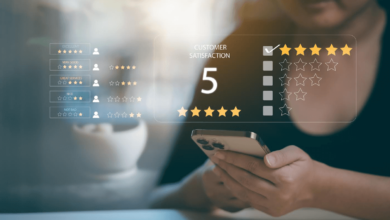Rajkotupdates.News : Pubg Developer Krafton Has Filed A Lawsuit Against Garena Free Fire

The world of gaming is a vast and ever-evolving landscape that has captured the hearts and minds of millions. It is a place where individuals can escape reality, immerse themselves in new worlds, and connect with people from all over the globe.
However, within this realm of creativity and innovation, there are also legal battles being fought behind the scenes. Recently, news broke that Krafton, the developer of PlayerUnknown’s Battlegrounds (PUBG), has filed a lawsuit against Garena Free Fire.
This battle royale game from Singapore-based Garena has become immensely popular worldwide with over 1 billion downloads as per recent reports. The lawsuit raises concerns about intellectual property infringement and unfair competition between these two giants in the gaming industry.
The case highlights how developers must navigate a complex legal landscape to protect their creations while still allowing for innovation within an industry that thrives on it.
Overview of PUBG and Garena Free Fire
The two popular battle royale games, one developed by PUBG and the other by Garena, have gained significant traction among gamers worldwide. While both games share similarities in terms of gameplay and mechanics, they also possess unique features that set them apart from each other.
PUBG, which stands for PlayerUnknown’s Battlegrounds, was first released in 2017 and quickly became a sensation among gamers due to its realistic graphics and immersive gameplay experience. The game is known for its large maps that allow up to 100 players to compete against each other in a last-man-standing battle. PUBG’s popularity lies in its intense combat situations, where players must strategize their every move to outsmart their opponents.
On the other hand, Garena Free Fire offers a more casual and fast-paced gaming experience compared to PUBG. Released in 2017 as well, Free Fire has become increasingly popular because of its smaller map size that allows up to 50 players per match. The game also boasts unique features such as customizable characters and weapons that add a personal touch to the overall gaming experience. Its quick rounds make it an ideal choice for gamers who want a fun yet challenging game without dedicating too much time to it.
Explanation of the Lawsuit Filed by Krafton
This section provides an explanation of the legal action taken by one popular gaming company against another.
Krafton, the developer of PUBG, has filed a lawsuit against Garena Free Fire alleging that the latter has infringed upon its intellectual property rights. The lawsuit was filed in the District Court for Central California on June 9, 2021.
Legal implications of this development are significant as both games enjoy a massive player base and generate substantial revenue.
The crux of Krafton’s allegations is that Garena Free Fire has copied several elements from PUBG without obtaining proper licensing or permission. These elements include maps, weapons, characters, and user-interface design.
If proven true, this could be a major blow to Garena Free Fire’s credibility and financial standing as they may have to pay damages for copyright infringement.
On the other hand, if Krafton fails to prove its case in court or settle out-of-court with Garena Free Fire, it may affect their reputation adversely too.
It remains to be seen how this case plays out and what kind of precedent it sets for future cases involving video game companies battling over intellectual property rights.
Implications for Battle Royale Games and the Gaming Industry
The legal battle between Krafton and Garena Free Fire has created implications for the gaming industry that cannot be ignored. The lawsuit over alleged copyright infringement by Garena’s game, Free Fire, could set a precedent for future cases as other developers may begin to take similar legal action against one another.
This case has highlighted the need for clear guidelines and regulations in the gaming industry to ensure fair competition and collaboration opportunities. Competition analysis is essential in any industry, including gaming. Developers need to know what their competitors are offering and how they can differentiate themselves from those offerings.
However, when this competition becomes unfair or involves stealing of ideas or content, it leads to lawsuits like the one Krafton filed against Garena Free Fire. Such disputes have far-reaching consequences that can affect not only the parties involved but also other stakeholders such as gamers and investors.
In conclusion, the legal dispute between Krafton and Garena Free Fire serves as a reminder of the importance of respecting intellectual property rights in gaming. Collaboration opportunities must also be encouraged alongside healthy competition for innovation to prosper in this dynamic industry. It is crucial for developers to understand that while taking inspiration from others’ works is acceptable, copying them entirely without permission or giving credit will result in costly litigation with severe repercussions on their reputation and financial standing.
Responses from Garena Free Fire and the Gaming Community
Responses from Garena Free Fire and the gaming community reveal contrasting opinions on the outcome of the legal battle between Krafton and Garena Free Fire. Some gamers express concern that this lawsuit may limit creativity and innovation in game development, while others argue that intellectual property rights must be protected at all costs. Garena’s defense is centered around their assertion that they have not copied any specific elements from PUBG, and instead have focused on building a unique experience for their players.
The impact of this lawsuit on esports communities remains to be seen, but many gamers worry about how it will affect future developments in the industry. Some believe that this lawsuit will set a dangerous precedent where creative works can be stifled by legal actions based on loosely defined similarities or concepts. This could lead to an overall lack of innovation within gaming as companies become more hesitant to take risks due to potential legal repercussions.
Despite these concerns, there are also those who see this lawsuit as an important step towards protecting intellectual property rights within the gaming industry. They argue that game developers invest significant time and resources into creating original content, and should therefore be able to protect their work from being replicated without permission or compensation. Ultimately, both sides have valid arguments, but only time will tell what effect this legal battle will have on the future of gaming.
The controversy surrounding Krafton’s decision to file a lawsuit against Garena Free Fire highlights ongoing debates about copyright laws in video games. Intellectual property disputes are common in various industries including film, music, literature etc., but with rapid advancements in technology leading to increasingly complex games with higher stakes involved we can expect such lawsuits happening more frequently.
While some might view Krafton’s decision as a necessary step towards protecting its intellectual property rights over PUBG; however others question whether such lawsuits stifle creativity & innovation when it comes to game design which is often inspired by existing works or ideas borrowed from other sources.
Depending on how this legal battle pans out, it could have ripple effects across the gaming industry and beyond. The final verdict in this case will set a crucial precedent for future intellectual property disputes within the gaming industry, and its implications may extend to other creative industries as well.
Potential Outcomes and Future Developments of the Lawsuit
The potential outcomes and future developments of the lawsuit between PUBG developer Krafton and Garena Free Fire will likely revolve around two key points: settlement or verdict.
A settlement could entail a financial agreement or an adjustment to game mechanics, while a verdict may result in legal action taken against either company.
The impact of this lawsuit on both games and the gaming industry as a whole remains uncertain, but it has the potential to set precedents for future cases involving intellectual property rights in video games.
Settlement or Verdict
A decisive verdict or a mutually agreed settlement could potentially end the legal tussle between Krafton, the developer of PUBG, and Garena Free Fire. This would mark a momentous milestone in the gaming industry, as it would establish a precedent for future cases involving intellectual property rights within the battle royale genre. However, before any decision is made, both parties must weigh their options for resolution.
- Negotiation: The two developers may choose to enter into negotiations in order to avoid a lengthy and expensive court battle. This could involve mediation or arbitration with a neutral third party facilitating discussions.
- Litigation: If negotiations fail, litigation becomes necessary. Both parties will need to present evidence and arguments that support their claims in court.
- Settlement: At any point during litigation, either party can offer a settlement agreement that ends the dispute outside of court.
- Verdict: Should neither negotiation nor settlement be successful, then the case will proceed to trial where a definitive verdict will be rendered by the judge or jury.
Regardless of which option is chosen, it is important for both Krafton and Garena Free Fire to carefully consider their legal strategy moving forward as the outcome of this lawsuit could have significant implications on not only their respective games but also on other similar ones in the market.
Impact on Both Games and the Gaming Industry
The lawsuit between PUBG developer Krafton and Garena Free Fire has sparked a debate on intellectual property rights in the gaming industry. The outcome of this legal battle could have far-reaching consequences for other game developers and their respective titles.
With market competition at an all-time high, game developers are fiercely protecting their intellectual property with lawsuits like this one. However, it remains to be seen how this will affect player preference for these two popular games.
While some players may remain loyal to their preferred title, others may switch to the opposing team depending on the outcome of this lawsuit. Either way, it is clear that both games will need to continuously innovate and offer unique features to maintain their market share amidst growing competition within the gaming industry.
Frequently Asked Questions
What are the specific allegations made by Krafton against Garena Free Fire in the lawsuit?
In the recent lawsuit filed by Krafton against Garena Free Fire, specific allegations have been made regarding copyright infringement and plagiarism of game mechanics.
The lawsuit claims that Garena Free Fire has copied several features from PUBG, which is a game developed by Krafton.
These allegations include similarities in gameplay, map design, character designs, weapons and vehicles.
While the impact on players of both games remains to be seen, it is important to consider the role of intellectual property rights in the gaming industry and how they affect game development.
Possible motives behind Krafton’s lawsuit could include protecting their intellectual property rights as well as maintaining market dominance.
Overall, this situation highlights the importance of respecting intellectual property rights in order to foster innovation and creativity within the gaming industry.
How does this lawsuit impact players of both PUBG and Garena Free Fire?
The ongoing legal battle between Krafton and Garena Free Fire could have a significant impact on the gaming community.
While the specific allegations made by Krafton against Garena Free Fire are not yet clear, it is likely that both games will experience some degree of disruption as a result of the lawsuit.
Players may be unable to access certain features or updates while the case is ongoing, and there may be a decrease in player activity as fans wait for more information.
However, if a resolution can be reached that satisfies both parties, this could ultimately benefit gamers by promoting fair competition and innovation within the industry.
It remains to be seen how this situation will play out, but it underscores the need for developers to prioritize ethical practices and respect for intellectual property in order to maintain a healthy gaming ecosystem.
Has Krafton filed similar lawsuits against other battle royale game developers in the past?
The legal implications of the ongoing battle between game developers in the industry competition cannot be overlooked. Krafton, the developer of popular mobile game PlayerUnknown’s Battlegrounds (PUBG), has recently filed a lawsuit against Garena Free Fire for alleged copyright infringement.
This is not the first time that Krafton has taken legal action against other battle royale game developers, as they have also previously sued Epic Games and NetEase for similar reasons. Such lawsuits reflect the challenges that companies face in protecting their intellectual property rights in a highly competitive market where imitation and copying are rampant.
Despite these legal battles, players enjoy a wide range of games with similar gameplay mechanics and features, reflecting their strong desire for freedom to choose from multiple options in an increasingly crowded gaming industry.
How might this lawsuit impact the development of future battle royale games?
The battle royale gaming industry has seen a significant rise in popularity over the last few years. With the emergence of new technologies and changing market trends, the competition in this industry is expected to intensify in the future.
However, with Krafton’s recent lawsuit against Garena Free Fire, it remains to be seen how this could impact the development of future battle royale games. Although it is difficult to predict the outcome of this legal dispute, it is likely that other game developers will become more cautious when creating new titles as they try to avoid potential legal issues.
As such, future competition within this industry may be affected by these ongoing legal battles, ultimately shaping its development and growth in unforeseeable ways.
Are there any potential legal precedents that could be set as a result of this lawsuit?
The potential legal implications of the lawsuit filed by Krafton against Garena Free Fire may set a precedent for future Battle Royale competition.
If Krafton is successful in proving that Garena Free Fire has infringed upon its intellectual property rights, it could lead to stricter enforcement of copyright laws in the gaming industry.
This may have a significant impact on game developers who create games with similar concepts and mechanics as existing popular titles.
The outcome of this legal battle could also affect the level of innovation and creativity in the gaming industry, as game developers may become more hesitant to incorporate elements from other successful games for fear of potential legal action.
Overall, this lawsuit has the potential to significantly shape the future direction of Battle Royale competition and intellectual property rights within the gaming industry.
Conclusion
Krafton, the developer of popular battle royale game PUBG, has filed a lawsuit against Garena Free Fire for copyright infringement. The lawsuit alleges that Free Fire copied various aspects of PUBG’s gameplay and aesthetics, including weapons, vehicles, and character designs. This legal action could have significant implications for the gaming industry as a whole.
If Krafton is successful in its lawsuit, it may set a precedent for developers to protect their intellectual property more aggressively. It could also lead to changes in how games are designed and marketed, as developers seek to differentiate themselves from competitors and avoid potential litigation. However, if the lawsuit fails or is settled out of court, it may signal that certain elements of gameplay can be freely borrowed without consequence.
In response to the lawsuit, Garena Free Fire has stated that it respects intellectual property rights and intends to defend itself vigorously against Krafton’s allegations. Some members of the gaming community have expressed concern over what they view as an overly litigious approach by Krafton and other large game companies.
Nevertheless, this case serves as a reminder that intellectual property remains a critical issue in today’s gaming landscape.
In conclusion, Krafton’s lawsuit against Garena Free Fire raises important questions about intellectual property rights within the gaming industry. Regardless of the outcome of this particular case, it is clear that developers will need to navigate complex legal issues surrounding ownership and innovation in order to succeed in an increasingly competitive marketplace.
As Shakespeare once wrote: ‘All the world’s a stage,’ and indeed all eyes are on this high-profile legal battle between two major players in the world of battle royale games.





